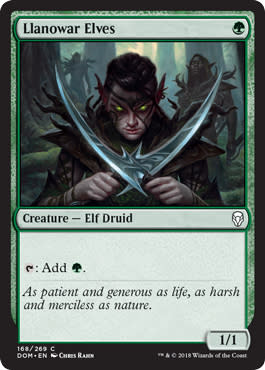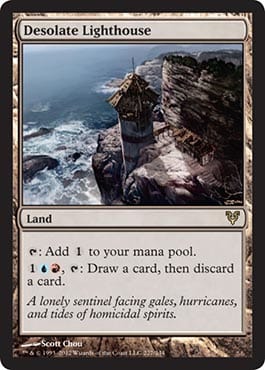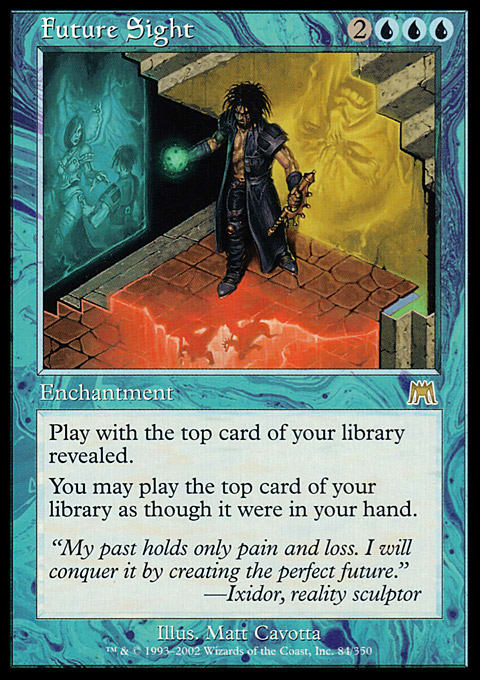My name is Jason Alt, and I started playing Magic: The Gathering in 2004.
Actually, that isn’t right. Let me back up a bit.
In 1996, I was introduced to the concept of the game Magic: The Gathering by a friend of mine on a camping trip. After having my head filled with his favorite cards and interactions for an entire weekend, I was hooked. As soon as I returned to civilization, I had my father drive me two towns over to a hole-in-the-wall used record shop that also sold Fourth Edition gift sets because that’s where this same friend said he bought his cards. After all, they couldn’t possibly be in my own town, could they? I would have already heard about them if they were.
Soon, my best friend, my brother, and I were playing whenever we could, but we weren’t improving much. I didn’t see the point of Llanowar Elves and mostly used it as a chump-blocker. I didn’t get that Sivitri Scarzum was just a really terrible Craw Wurm (I was eleven at the time; give me a break), and my deck consisted of all of the cards I owned. It wasn’t until I made it out to Magic Night at my local game store when I became any better at all. A player there taught me to make my own tuned, sixty-card, two-color color decks. I learned the importance of a manageable mana base. I learned how to trade (by being ripped off and looking the prices up in a Scrye magazine later. I resolved on that day to only trade if it was going to be in my favor), and I got to see what tuned metagame decks looked like in action. It was an educational night. A few more Magic Nights and a subscription to Duelist magazine later, and I was easily the best player in my school. This continued through middle school and high school, and I showed up at college reasonably sure I knew what I was doing.
I couldn’t have been more wrong.
2002 was my freshman year of college, and the metagame in Standard was ruled by Psychatog and madness decks I had no idea how to pilot. I took my best deck: a four-color Slivers deck with Worship and Arcane Denial to a Legacy tournament at the LGS. After I went 0–5, everyone in the shop wanted to play a Money Draft—a concept so alien to me I decided to excuse myself from the store and not go back for two years.
It’s worth mentioning that at that point, I was less than an hour from RIW Hobbies in Livonia, Michigan—arguably the most prolific shop in the United States at pumping out professional-caliber players. But I wasn’t connected to that store in any way—or to any of the players in it—so I might as well have been living on a desert island armed only with a few Scourge tournament packs and Scrye back issues.
I had a breakthrough in 2004, and within a few months, I was winning prizes at LGS Legacy tournaments, where before, I was going 0–5. I was winning Money Drafts, whereas before, I was scared off by the mere mention of the concept. I was taking prizes at Regionals and Pro Tour Qualifiers, whereas before, I was too intimidated to even attend these events. I was winning Friday Night Magic, whereas before, that seemed a little too competitive. Since what I was doing before this wasn’t really playing to my full potential, I like to say I started playing in 2004. The secret to the breakthrough was connectivity.
Connectivity and You
There are two types of connectivity that matter to you as a Magic player: physical and electronic. Physical connectivity isn’t anything I can help you with. Physical connectivity is the network of players you’re a part of in physical space. It’s the LGS you frequent. It’s the people you playtest with. It’s whom you trade with, who lends you cards for your deck, and whom you ride in a car with to events. It’s whom you share a hotel room with when you’re there and whom you have dinner with before you leave. These aren’t bonds that any website article is going to help you form, but they are the most important parts of your development as a player.
Electronic connectivity, however, is something I can help with. You’re reading GatheringMagic.com, so you’re already on the right track. You probably read a decent amount of articles, and that’s good. But that’s only one small aspect of what you can do to use the ultimate tool that is the Internet to maximize the amount of connectivity you and your physical network have to the vast network of players out there.
What got me thinking recently about my own connectivity was in part spurred by a website I ran across recently, having seen it linked by someone who wanted to share an article about tricky Legacy interactions. While the original article and its follow-up article are quite good, especially given that they were written by a couple of amateur writers (in the sense that they don’t write for another website professionally), I was most struck by the concept of one website to unite an entire community.
While I’ve seen some communities use social media like Twitter or Facebook to link their community, this website is quite comprehensive. It has tournament reports, articles written by members of the community, a link to local stores, and even links the Facebook group used by members of the community. As a WordPress site, they could easily expand their offerings and add a discussion forum for their members to have more private discussions and share tech and articles they found.
So, what does this relatively small (the tournament reports routinely mention events with between fifteen and twenty attendees) community have to teach the rest of us? Well, what you take from it is up to you, but what I took away from it is that some communities are using the Internet and going beyond simple social media sites to create an environment for members of their community—from the players to the game stores—to congregate and share quality content. If your playgroup is using a Facebook group or private message board to communicate, don’t you feel that you might benefit from a website focused on your state or region that would connect you to a larger pool of playtest partners, carpool mates, hotel room members, and so on? Such a website, powered by WordPress in this instance, would be relatively easy and affordable to bring up and running, and most communities have no shortage of volunteers to contribute to upkeep and content. The success of this website, apart from providing a few articles worthy of being posted on any major Magic website, is that the entire community seems to be behind it.
I’ve often said I’m quite lucky to live in the Midwest because it seems that every other Grand Prix happens here. Between Indianapolis, Chicago, Columbus, and so on, there are one or two GP-sized-or-bigger events a month within four hours or so of me. Add to that Origins and GenCon, and you realize how easy it is to stay connected with the tournament scene when you live in the Midwest. Arizona, however, isn’t quite so fortunate. The southern United States rarely has events of this size, and when they do, the closest one may still be a ten hour drive even if it’s only one state over. For players who live in the more remote areas of the country, using the Internet as a digital lifeline to stay plugged in to the developments in the rest of the community is essential.
Bridging the Gap
To that end, residents in a similarly remote area of North America have followed suit. Also taking advantage of the simplicity and customizability of WordPress, the residents of Hunter, Nova Scotia have banded together to create MTGHunter, a website where they can share tech and info and stay connected to what’s going on during the eleven months a year when there isn’t an event within driving distance. Additionally, this site uses a great majority of its coveted sidebar space to provide its viewers with links to another excellent resource: Magic podcasts.
In addition to communities that are far removed from high-traffic areas such as the coasts or the Midwest, some communities in remote areas are temporary communities. A great example of this is students at a University, who are all on the same team—that is, until they all graduate. Once that happens, how best to stay connected? This site in Australia aims to keep current students abreast of all the news and developments while also serving to keep recent graduates from fading into obscurity. Since Adelaide is far from inundated with local GPs, a site like this one is instrumental in availing players of every possible opportunity to play in local game store events.
So, what have we learned? What I took away is that whether you’re in the frozen tundra of Nova Scotia or the sun-blasted wasteland of Arizona or Adelaide, Australia, it’s vital to stay connected not only as a local community but also as the larger community worldwide. A common thread I saw was the use of WordPress, a website originally used for blogging (a solitary and somewhat narcissistic pursuit that was popular a decade ago but is gradually being replaced by Twitter and Instagram), has been used to unite communities, which seems kind of ironic, but in a good way. Present in all three sites I examined was a link to a Facebook group, which further binds the disparate members of a playgroup into a more closely knit network.
My Vision for the Future
In this column, I want to examine how technology is being used by the Magic community to take their games to the next level. In the next installment, I plan to elaborate a bit on how social media are used to share information and how the parameters of different social media allow the information-sharing to be both inclusive and exclusive. If all goes well, you may find yourselves incorporating these ideas into your own regimens and finding your own success increasing just as mine did the first time I stepped into my LGS and learned just how much I still had to learn about this game.
Thank you for reading, and I look forward to our next encounter.


























